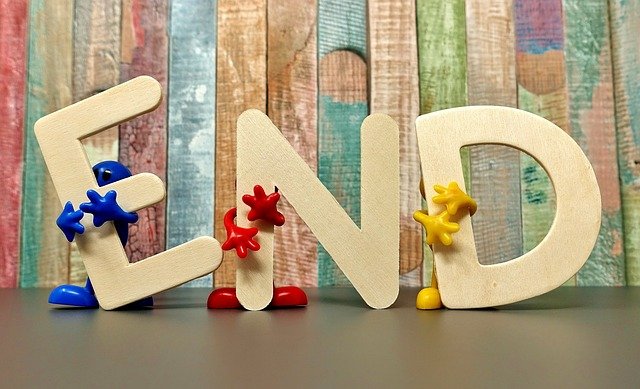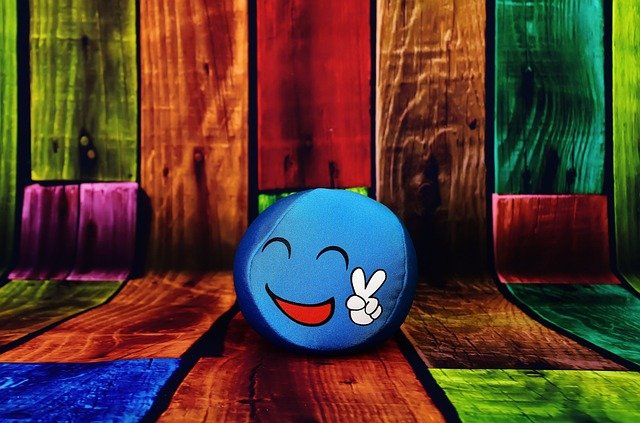Introduction to the Emotional Impact of Gifts
Following are some of the worst annoyances of gift-giving traditions in almost every socio-culture that deals with celebration, event, time, and own people. But being gifted something is more than the giving and receiving of a material object; it brings along an intricate cocktail of emotions that can be hard to shake. Gifts: The emotion–gift bond deserves examination to showcase the importance of emotional bonds and the psychological effects that gift-giving creates emotionally.
First, gifts can make you feel loved, appreciated, and thoughtful. People view giving a gift as a physical representation of their love and care when receiving it. This fosters a sense of expectedness, which bonds, reinforces, or strengthens personal relationships grounded on similar interests. In addition, the emotional reaction a gift can bring is not always about its price or usefulness; often, it is a thought that makes a big difference as a part of a gift.
In addition, gifts tend to have more emotional weight around the holidays. Birthdays, anniversaries, and holidays are the times when giving takes on a greater meaning and a way to embody feelings that words cannot capture. The reminiscences tied to such presents are typically final, aiding cement links lengthy gone the event is over.
Gifts are also perceived differently from culture to culture, as well as among both genders, with specific meanings ascribed to specific types of gifts in different societies. But there is more to these dimensions of understanding, especially when it comes to the emotional significance surrounding gift receiving. In a world ever more obsessed with the material, this awareness of the affective nature of gifts brings a three-dimensional view back into a part of life that just invites us to become human, to embrace the complexity and depth of emotions that life grants us.
Why do people give and receive gifts? The psychology of gifts.
Gift-giving and receiving are important in interactions between humans, and it is affected by a lot of psychological factors. The main reason for gifting is one of love; to show appreciation and thankfulness. Through gifting, they try to convey emotions that words may not be able to convey, nurturing emotional bonds even further. Such actions reinforce relationships as they become physical tokens of love and recognition.
The flip side of opening gifts or gifts is that the emotional reactions are very intense. Typically, if people are receiving gifts, they feel happy and excited, and this enhances their general well-being experience. Thus entering into a warm ebb and flow of good vibes from the act itself, and feeling connected through the recognition of the thought and effort on the behalf of the giver. One emotion that ends up emerging from the recipient is gratitude since the recipient appreciates the sentiment behind the gift. These kinds of feelings may create a cycle of reciprocity, prompting the recipient to want to say thank you or return the favor later.
Gifting is linked with reciprocity (the social norm of responding to a positive action with another positive action) and having to return a host of favors. One of the key principles behind this is reciprocity, as we feel most obliged to give back when being offered something; this is especially true in the selling context where gifting is prevalent to maintain social balance in personal and professional relationships. These emotional benefits then help to preserve relationship satisfaction, as well as provide an atmosphere of community and belonging. Rather, the dynamic relationship between giving and receiving makes gift-giving out to be not only a cultural act but also an option to enhance the emotional connections between people.
The Social Bonds That Gifts Create
The importance of gifts in strengthening social relationships between people. Gift-giving is an hour-old human practice and one of the oldest cultural symbols of human relationships that conveys affection, courtesy, and commitment. Birthdays, anniversaries, and holidays are occasions perfect for gifting — they give people a backdrop to express their sentiments and intentions in physical form. Gifts can often remind you of the giver’s thoughtfulness and care, thereby strengthening the emotional bond.
During celebrations, gifts are powerful symbols that speak to so much more than their real value. A birthday gift, for instance, not only heralds another trip around the sun but also shows that a friend or family member is putting some care and effort into that person’s happiness and good health. Gifts help create bonds between people by serving a double purpose of being physical objects and emotional tokens. Likewise, gifting on anniversaries is all about declaring your promises to one another and your nostalgia together, which is the base of relationships.
Giving and receiving gifts is no different—beyond the physical, the gift symbolizes love, appreciation, and respect. Understanding these subtleties around how gifts function socially encourages another focus — their importance in cultivating and/or cementing relationships. A thoughtful gift can even strengthen a connection and an emotional bond with someone else.
What the Gifts Are and Their Emotional Value
Gifts have a crucial place in human relations, often serving the purpose of demonstrating love, gratitude, or simply celebrating. The type and careful selection of a gift largely dictate its emotional charge. Knowing the different types of gifts can help to understand why each one has a specific emotional effect.
The most recognized of these are personalized gifts, something which by their very nature, derive an emotional quality. Personalized gifts—be it custom-made jewelry, monogrammed items, or customized photo albums—speak of intimacy with the recipient’s inclinations and aspirations. Being deliberate in these gestures can provide a sense of being cherished, and worthy, which potentially enhances the emotional bond between the giver and the receiver. Just by personalizing the gift, you turn it into something more than a token possession — into something tangible and full of love.
Another important gift category is experiential gifts, which celebrate shared memories and experiences, and not material possessions. Such as concert tickets, travel vouchers, cooking classes, etc. Experiential gifts have an emotional component because memories form with the shared experience itself, deepening connections and strengthening bonds. They focus on time shared and often allow for a deeper connection compared to physical gifts.
Practical gifts may have a more utilitarian reputation than sentimental ones, but they also come with their emotional baggage. These utility gifts, like appliances, tools, or necessary items, reflect thoughtfulness on the part of the gift giver. A practical gift also has the benefit of being a thoughtful one, and that can instill a deeper sense of appreciation because it shows the giver has at least an awareness of the recipient’s life context. A functional, thoughtful gift plays a big role in creating something cherished beyond its initial monetary value.
To conclude, gifts carry a wide array of emotional weight depending on the type of gift. The consideration given to the choice is what makes a gift special — its real worth can be defined only by the fact that it conveys far deeper human connections than the value of the material gift idea used to deliver these real emotions. Becoming familiar with these types can help us understand the emotional dynamics that are at play when we exchange gifts.
How Receiving Gifts Make People Feel Positive
There are many feelings associated with opening a gift and the sense of receiving a gift helps build the complex behavior of humans. Joy is perhaps the most insistent emotion that comes in when someone opens up a gift or is surprised with a nice gesture. That is a message that does not only add a smile on the face but also leads to a release of endorphins, strengthening a feeling of joy, coupled with memories related to the person giving the gift. This feeling is enhanced when a gift comes as a surprise, with surprises carrying a special thrill that sets the soul in a more animated motion.
Plus, surprise as an emotion plays a big part in the practice of receiving gifts. Surprise is unexpected which engages the curiosity of your readers and makes their interest spike. That unpredictability instills a sense of excitement, turning the mundane into something magical. A surprise gift has a greater emotional effect because a gift that arrives at an unanticipated time or in some unexpected way offers the gift providing thoughtfulness its full impact.
A deeper feeling that lies beneath the act of receiving gifts is appreciation. A gift often signifies a meaning that the giver knows, acknowledgment, and care of the recipient. Recognizing this generates a sense of gratitude, reinforcing social bonds and being beneficial for mental health. The person receiving the gift feels like they belong and are loved, they feel part of a group (which is essential to emotional health) because of how much effort, consideration, and time was put into creating the gift for them. But the warmth evoked as a result of such acknowledgement more often than not encourages greater self-worth and improves the quality of life.
With all of these thoughts, getting gifts can be a BIG trigger for happiness, surprise, and gratitude. Not only are these emotions more fulfilling for personal experiences, but also essential for relationships and mental well-being.
Gift Givers and Gift Recipients: The Gift that Could Bring Negative Feelings
While gift-giving may have a positive connotation and is assumed to be bright-filled with joy, it can also have negative feelings attached to it that deserve thought. For example, if you get a present, you might start to feel guilty if you sense an imbalance in the exchange. This feeling often comes into play when the other person feels unqualified to return the favor you provided, which can carry the burden of feeling in debt. One of the pervasive guilt feelings erodes the very gift – and even its intent – that the gift was intended to represent.
Moreover, gift-giving comes with social expectations that can add enormous pressure on the person giving or receiving the gift. Knowing you have to repay a gift will turn the event of getting a gift into a stress-filled experience rather than an enjoyable one. Donation recipients can experience ambivalence over how to adequately thank their benefactors and concern about the social consequences of their decisions. If the recipient and giver have a differing attitude towards the type and meaning of gifts, this could place pressure on their relationship. Hence, it should be noted that gift expectations could impact emotions in the long run.
For others, a gift can even instill feelings of inadequacy. This may come from comparing your status with others. If someone comes upon a big-ticket item when they are short on funds, they may feel low value for themselves and their self-worth takes a hit when someone else walks in with a fancy gift or the latest hot thing. It’s important to realize that these feelings can stem from societal expectations that the value of a gift is determined by the expense or thoughtfulness of the offering.
In sum, gift-giving is a highly charged emotional event, one not easily reduced to simplistic conclusions. Needless to say, gifts should bring people together and their usage could also result in many negative feelings, making it essential to know the emotional responses to a gift that are not alike.
Give Gifts That Evoke Emotion: Tips
Giving a gift is in itself a strong form of expression, but the journey of a gift does not end with the physical presence of the gift. Many of the facets that add to how personal your gift is can affect what it means emotionally and significantly. And here are some tips that might assist you with the selection of gifts that are emotionally more resonant.
The first is that personalizing a gift can greatly increase its potency at home. That can be something like an engraved quote or either wear the name of the person who is receiving the gift or any other thing that reminds you about those beautiful memories that you share with them. Personalized gifts also reflect thoughtfulness and convey to the gift receiver that you value your relationship, so the gift is personalized and special.
The gift selection process heavily depends on the knowledge regarding what the recipient likes based on previous interactions and your analysis. Think about what they like to do, what they enjoy, and what they need. An item that resonates with their hobbies will seem more colorful and it will give the impression that you care about their joy. We appreciate a personal gift that does not only show you how well you know who they are but also is a bond you share.
Then the other key thing is to talk about experiences and not just about things. Tickets to a concert, a class together for cooking, a weekend away — all these gifts can create memories that live much longer than the cash and deepen the relationship. Experiential gifts elicit deep emotional responses because they create connections through shared experiences.
Finally, if your gift will be given in a paper or gift bag or not being personally handed over, consider an actual note or card to go with your gift. Some highly personalized words can elevate the emotional impact by making clear the meaning of your feelings or what the gift represents to you. This reflects that your gift is from your heart and makes it more precious.
These 10 ideas will help you do that, making your gift-giving practices more meaningful and one that may end with an experience you and your loved ones will always remember.
How about accepting gifts graciously
Being gifted something is a big deal and on its own, the person putting forth the effort to gift it likely spent time thinking too much about the gift itself. Receiving gifts gracefully is very important in order to build a strong bond and appreciate the gesture. This practice not only respects the original giver’s intention but it will also be helpful in increasing your own state of mental happiness.
Above all else, be sincere with your thanks. Regardless of the size of the gift, a heartfelt thank you recognizes the effort that goes into the thought. A little effort in sending a thank you note when you receive a gift will help you emotionally relate to the giver. Add some body language into this for good measure; a nice smile or eye contact to show that you appreciate their kindness.
When receiving a gift, especially one that a person obviously may not want or truly need, the important thing is to remember the purpose behind the gift (the emotion) and not the object. For instance, if you see a gift that is not to your liking, it helps to remember the message behind the gift. Instead of whining about the gift, you might comment on the creative process behind how they chose it. Writing in a more grateful context — phrases like “I appreciate you coming to me” or “What an interesting selection” — can be helpful in this case.
Also, make sure to follow it up with a handwritten letter or a personal note. This will not only remind them of your gratitude but also strengthen the emotional bond formed through the gift exchange. This kind of response fosters a deeper engagement, showing that their act has registered with you.
Having known the art of receiving gifts with grace through sincere appreciation, recognizing emotional content, and follow-ups, we can strengthen relationships and build a culture of gratitude which can bring improvement in interpersonal relations. This technique can help both the giver and the receiver experience uplifted emotions arising due to the gifting experience.
Final Thoughts: Gifts Do Last a Lifetime

When you take a closer look at the emotional aspect of giving and receiving gifts, you realize that these gestures are not as simple as a rudimentary gift exchange. Now, Gifts have a major role to play when it comes to reinforcing social bonds and nurturing relationships. Gifts can express appreciation, love, and belonging, and the feelings associated with gift-giving can often last longer than the physical gift itself.
Studies show that both giving and receiving gifts stimulate an emotional reward which contributes to greater happiness. Of course, in the hectic world that we live in such profound connections may be watered down, which makes it all the more relevant. By revealing the emotional weight of gifts, they can nudge people to give gifts more meaningfully and mindfully. Being present, in the moment, in the act of giving can enhance the experience of the giver but also boost the emotional state of the recipient which can lead to greater connection.
Alternatively, the culture and context of the situation with gift-giving can impact the emotions felt. Adding a personal touch, such as choosing a gift that aligns with the recipient’s interests or needs, reflects thoughtfulness and consideration, which only serves to amplify the emotional impact of the gift. On the other hand, gifts with no personal touch may not get such emotional gratification. Therefore, having an insight into the complexities of gifting would pave the way for better exchanges with deeper emotional bonds.
To sum up, receiving a gift is an emotionally turbulent experience that imbibes our experience and bonds with us. Accepting that gifts have emotions will help individuals relate better while also creating a compassionate community filled with joy.



